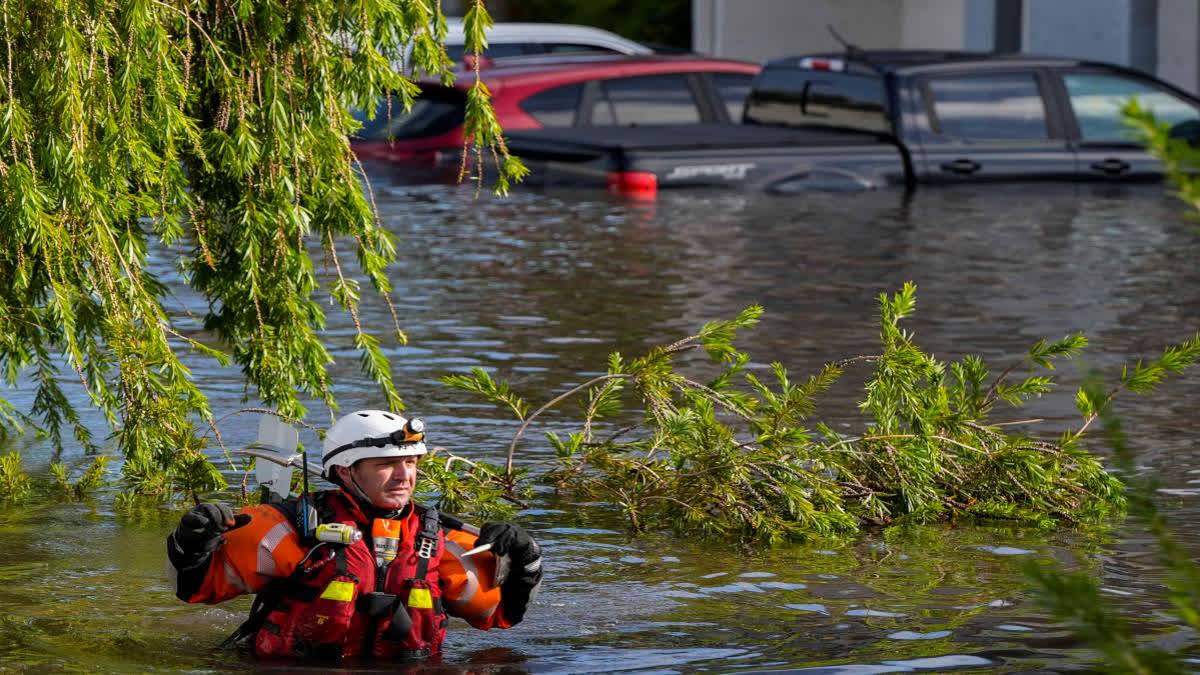New Delhi: The International Day for Disaster Risk Reduction 2024 will be observed on October 13, focusing on the crucial role of education in protecting and empowering children for a disaster-resilient future.
This year's theme underscores the urgent need to address the vulnerabilities faced by children, especially in the context of increasing climate-related disasters that threaten their safety, education, and well-being.
Recent reports from UNICEF indicate that approximately one billion children around the world are at extreme risk from the impacts of climate change and natural disasters. With incidents of severe flooding and other climate-induced events becoming more frequent and intense, the need for proactive measures to safeguard young populations has never been more pressing.
Notably, 2022 marked a particularly devastating year for children in several countries, including Chad, Gambia, Pakistan, and Bangladesh, where flooding affected more children than at any point in the last three decades.
The consequences of such disasters extend beyond immediate physical harm. Children face significant disruptions to their education, nutrition, and healthcare, as well as heightened risks to their protection and well-being. Schools often become inaccessible or are repurposed for emergency shelters, interrupting the education of countless children and leaving them vulnerable to various risks. Moreover, the psychological impact of such traumatic experiences can hinder their development and long-term prospects.
In response to these challenges, experts and advocates emphasise the importance of incorporating children's needs into national and local disaster risk reduction strategies. It is essential for governments to recognise the unique vulnerabilities of children when developing policies and frameworks aimed at disaster preparedness and response.
By understanding these specific needs, strategies can be designed to better protect young populations, ensuring that they are not disproportionately affected by disasters.
Moreover, empowering children and youth to play an active role in disaster risk reduction is critical. The Sendai Framework for Disaster Risk Reduction 2015-2030 highlights the importance of involving children and youth in the decision-making processes that impact their lives. By fostering a culture of resilience and encouraging young people to contribute their perspectives, communities can develop more effective and inclusive disaster response strategies.
Education plays a pivotal role in this empowerment. Schools can serve as platforms for teaching children about disaster preparedness, response strategies, and the importance of community resilience. Through education, children can learn to identify risks, develop critical thinking skills, and engage in community planning efforts. Such initiatives not only equip them with the knowledge to protect themselves but also instil a sense of agency, allowing them to contribute meaningfully to their communities.
As the International Day for Disaster Risk Reduction approaches, various events and initiatives will be organised worldwide to raise awareness about the importance of disaster education. Schools, community organisations, and governments are encouraged to participate in activities that promote understanding of disaster risks and resilience strategies. By leveraging the collective efforts of educators, policymakers, and community leaders, the goal is to create a safer environment for future generations.
In addition, advocacy efforts will focus on addressing the inequalities that exacerbate children's vulnerability to disasters.
Marginalised communities, including those living in poverty, often face greater risks and fewer resources to prepare for or recover from disasters. By highlighting these disparities, stakeholders aim to promote inclusive policies that ensure all children have access to the education and support they need to thrive in the face of adversity.
As we commemorate the International Day for Disaster Risk Reduction 2024, it is a critical moment to reflect on our responsibilities towards the most vulnerable members of society, our children. By prioritising education and empowering young people, we can work together to build a safer, more resilient future for all.
The call to action is clear: invest in our children, educate them about disaster risks, and enable them to take an active role in shaping their futures.
